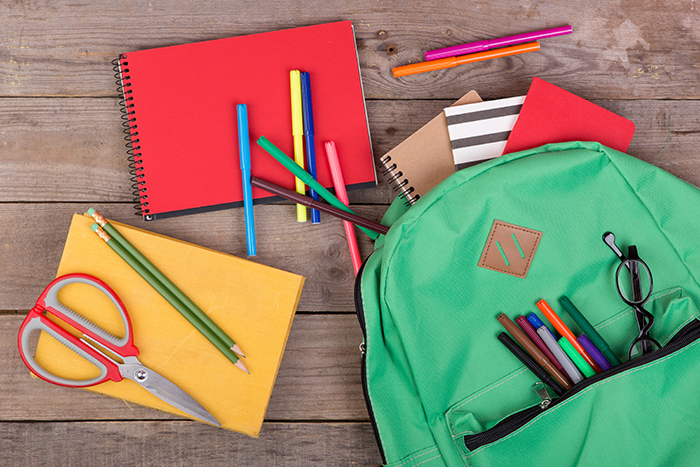
Challenges Facing Children in Going Back to School
Children are tender and sensitive to the world around them, and tend to get nervous when the time to go back to school draws close. International experts have offered a ton of advice to both parents and students on how to avoid back-to-school issues arising from children having to step out of the comfort zone of their homes after a summer break that could be as long as 90 days, and into a whole new environment full of unpredictability and hundreds of new faces in the form of students and teachers.
Sheikha Aisha Khalid Al Qasimi, Director of Sajaya Young Ladies of Sharjah, a subsidiary of the Rubu’ Qarn for Creating Future Leaders and Innovators, said: “Parents, schools, and students are involved in the preparation for back to school time. Parents may feel stressed because of the change in their lifestyle ranging from travel time to and from school, waking up earlier, preparing food and clothes for their children, etc. Parents should avoid showing their children the negative side of this change, as they may unintentionally contribute to increasing students’ anxiety about going back to school.”
Al Qasimi continued: “Upon recommendation by the National Happiness and Positivity Programme, the Federal Government launched the new ‘back to school’ policy that is supporting parents by allowing them flexible hours during the first week of school which will enable them to escort their children. This enables families to play an important role in supporting children to manage the transition. ”
Al Qasimi stressed that the most tricky task for schools is making students feel welcomed by creating activities that break the ice in a classroom and get the students acclimated with one another, as well as with the teachers and staff members. The first day is delicate as it establishes the student’s relation with the school and may affect their learning ability.
Al Qasimi added: “It is important to consider back to school stage as a continuation of summer break. Holiday experiences and parental care is instrumental in making back to school transition as smooth as possible. These two factors allow students to learn more and acquire new skills that will inadvertently help them overcome challenges in the future”.
Al Qasimi concluded: “Learning is a continuous process in life. This is not limited to academic learning at school. Modern teaching methods are becoming more flexible. Diverse school activities that combine education and entertainment help students acquire knowledge. We, at Sajaya, are keen to prepare and design programs and events throughout the year to keep our members always ready for learning and acquiring new life skills”.
“The summer camps and interactive activities that are curated throughout summer seek to achieve many objectives. They aim to stimulate physical and mental activities among students, defy sloth, laziness, and inactivity. The aim is to encourage a healthy lifestyle, enable students to implement tasks, and engage with the community. They can acquire new experiences and learn how to overcome any challenges they face,” Director of Sajaya added.
She noted that the preparation to go back to school cannot be done in one week, particularly in terms of mental, psychological, and emotional needs. She stressed that the few months that precede the school year are critical to facilitating students’ integration with schools’ lifestyle and their ability to face any hurdles.
Al Qasimi emphasised that Sajaya’s events and activities throughout the year complement schools’ curriculum as well as mental and physical activities that are curated throughout the school year. She pointed out that the pluralistic sources of knowledge and advanced information technology creates new avenues that can develop students’ skills especially among the sensitive age groups, such as adolescents.
On the challenges that face students aged 13-18 years, Al Qasimi said: “We realise that this age group, particularly for girls, are characterised by a set of physical and psychological changes. The challenges might manifest into bad behaviour, such as giving in to problems and fears, resulting in inactivity, or intensive and aggressive focus on the ‘I’. Sometimes by ignoring or underestimating others and taking school lightly.”
“We take this into account at Sajaya and are dedicated to foster responsibility and commitment among young girls, through varieties of edutainment and social activities. They are aimed at empowering and enabling them to acquire skills that develop responsible personalities, raise awareness,and understand the requirements of success and excellence.”
Al Qasimi underscored that it is critical for education institutions to complement the vision and mission of summer camps and social activities. She pointed out that the new generation expect schools to consider their aspiration for excellence and help them understand their needs, explore their talents, defy social challenges and fears that hurdle their success.
“The modern role of school goes beyond pure education and must strive to develop talents. They must recognize capabilities, enhance leadership, and teamwork. Those are few basic skills that our new generation need to imbibe. They should be active and achieve excellence not only as students but also as humans,” she added.



























